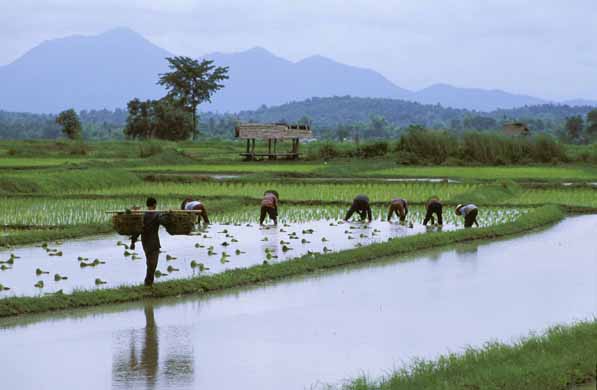A Poor Excuse?

In one typical northern Thai village, an ambitious project to create a fish-breeding center was literally washed away in monsoon season flooding because of bad planning. Today, the village is again a community of rice farmers, dependent on market forces beyond their control and with nothing at all to show for the investment of Thaksin’s cash injection.
A 2004 study found that less than half the village fund’s money was being spent on new, income-generating projects.
More than 3 percent was being used by rural families to pay school bills. An unknown number of borrowers were suspected of diverting their loans to put down payments on new vehicles, plunging them into years of hire-purchase debt—more than 16 percent of the villagers questioned for the survey said they were paying up to 40 percent annual interest to loan sharks.
Yet the consequences of a badly-conceived and populist policy such as the Village and Urban Revolving Fund go largely unrecognized in villages that are staunch Redshirt territory and where Thaksin remains a local hero.
Despite his enormous wealth, he commands wide sympathy in rural communities that instinctively root for the underdog.
A local elder and patron of two village temples told me: “Thaksin was treated unfairly. The government should not have taken his money.”
Ironically, this elderly man and his wife had benefited very little from Thaksin’s rule—yet were now 1,000 baht ($30) a month better off because of the pension scheme launched by Abhisit’s government. Their grandchildren were assured of at least 11 years of free education because of new social policies instituted by Abhisit.
Walking through their tidy village, I looked for signs of visible poverty—and found none. A new playground for the local children had been laid out since my last visit, two handsome new houses had been built, the local policeman had finished work on the pretty garden of his ranch-style home and a new car appeared to be parked in his double garage.
That night a wake was held before the funeral the following day of a 74-year-old retired rice farmer. The funeral was a three-day affair that cost the family more than 100,000 baht ($3,000), much of the bill covered by a house-to-house collection that occurs whenever any villager dies in this self-help community.
Scores of local people defied the 9 p.m. curfew and gathered at the family farmhouse, chatting far into the night over glasses of beer and home-distilled rice whiskey.
“So what did they all talk about?” I asked one mourner the next day. “The events in Bangkok, the political crisis?”
“I didn’t hear a word about it,” was the reply. “It was just the usual gossip. But what did you expect? We’ve got other things to worry about—the heat wave has destroyed several of my fruit trees, there’s a water shortage and it will soon be time to prepare the rice paddies.
“Nobody from this village joined the Bangkok rally, anyway,” she said. “Bangkok is such a long way away.”
« previous 1 | 2 |
|
||
|
||
